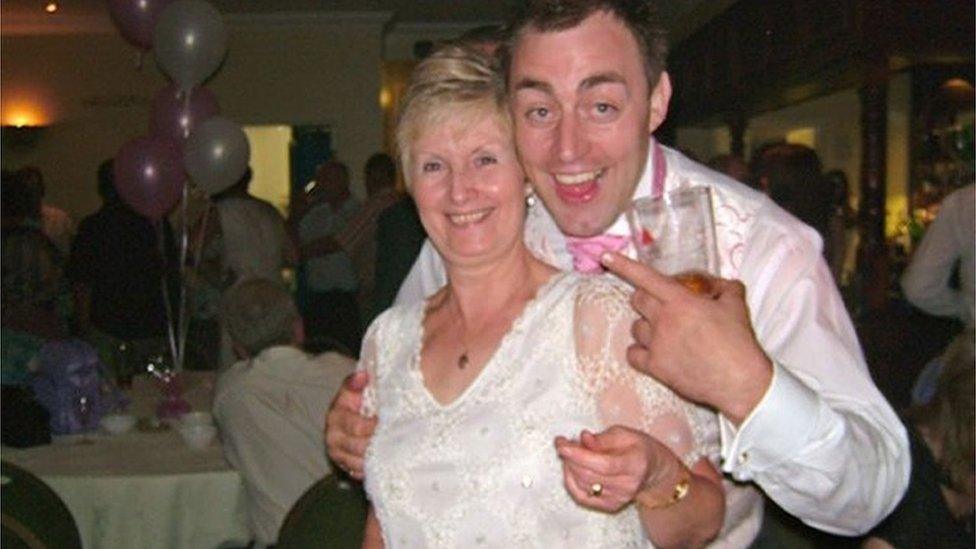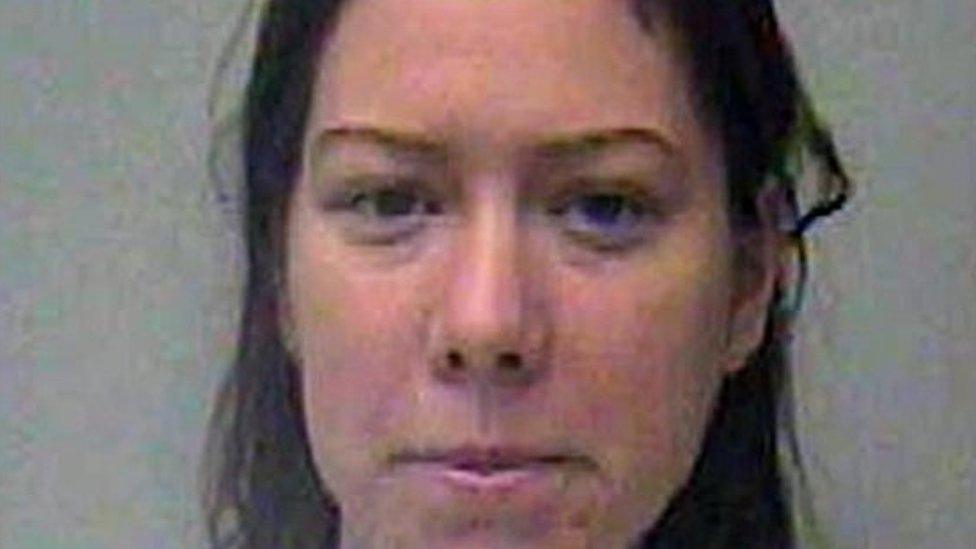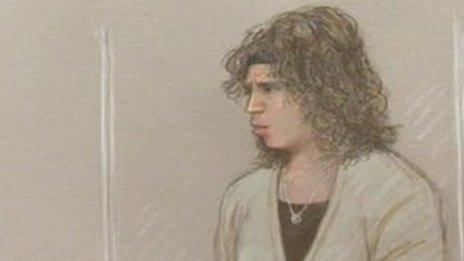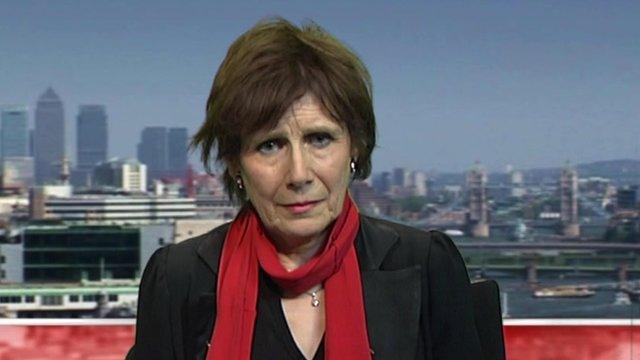Sally Hodkin murder: Failings led to killing by Nicola Edgington
- Published

Len Hodkin with his mother Sally Hodkin, 58, who was killed by Nicola Edgington in 2011
A series of NHS and police failings led to the brutal murder of a woman by a psychiatric patient, a report has found.
Nicola Edgington attacked Sally Hodkin, 58, with a butcher's knife in Bexleyheath, south London, in 2011.
The attack happened six years after Edgington had killed her own mother.
On the day of the murder, Edgington repeatedly called police and told A&E staff she needed to be sectioned because she felt like killing someone.
Edgington was taken to Oxleas House mental health unit in Greenwich to be admitted, but was allowed to walk out of the unit on 10 October 2011 to commit the crime.
She got a bus to Bexleyheath, bought a large knife from Asda and stole a steak knife from a butcher's shop.
She then stabbed grandmother Mrs Hodkin and another woman in the street.
She was convicted of murder and attempted murder for those two attacks.
Edgington had previously been convicted in 2006 of the manslaughter of her mother Marion at her home in Forest Row, East Sussex, and ordered to be detained indefinitely under the Mental Health Act.

Nicola Edgington had been ordered to be detained indefinitely under the Mental Health Act after being convicted in 2006 of killing her mother
The damning report, external commissioned by NHS England and released on Friday found staff at the Bracton Centre, run by Oxleas NHS Foundation Trust, deemed Edgington fit for discharge after three years.
It said Bracton Centre staff were too willing to accept Edgington's version of events and said documents failed to detail all concerns about her behaviour before discharge.
She was released in 2009 and allowed to live in the community.
After she was freed, Edgington was moved to accommodation with low levels of supervision and was also allowed to visit her husband in Jamaica.
Oxleas staff also failed to take seriously warnings made by her brother and sister that Edgington was still unwell and potentially dangerous, the report said.
The report found correspondence from the trust to the Ministry of Justice (MoJ), which approved the discharge, "did not fully reflect" concerns that had been raised about her disruptive, abusive and rude behaviour on the ward.
It also did not document her denial of any memory of killing her mother and her "fixation on making fast progress to discharge".
Overall, "reports... did not accurately reflect disruptive and aggressive behaviours described in the clinical notes", NHS England concluded.
The MoJ also asked for details of any concerns during the Jamaica trip, which could have led to Edgington being readmitted to a mental health unit, but these where never handed over by the trust.
Inadequate monitoring
When Edgington was discharged, Greenwich Police should have been informed of her release but the trust failed to forward on the paperwork, the report added.
On the day of the murder, when Edgington was taken to Oxleas House following several hours in A&E asking to be sectioned, a member of Oxleas staff missed an opportunity to give her the highest risk rating.
She was put down for 15-minute observations - a level deemed "inadequate" by investigators, who believed she should have had one-to-one monitoring while waiting to be admitted to the unit.
The report also pointed to missed opportunities by the police to section Edgington under the Mental Health Act on the day of the murder. Police staff also did not carry out a Police National Computer (PNC) check during their repeated interactions with her which would have alerted them to her conviction for manslaughter.
Mrs Hodkin's son Len, 40, a solicitor from Eltham, said Edgington should "never have been released in the first place" after killing her own mother and should have been "recalled to hospital when her behaviour deteriorated" after she was discharged.
He added his mother's death was "entirely preventable".
- Published7 February 2013

- Published4 March 2013
